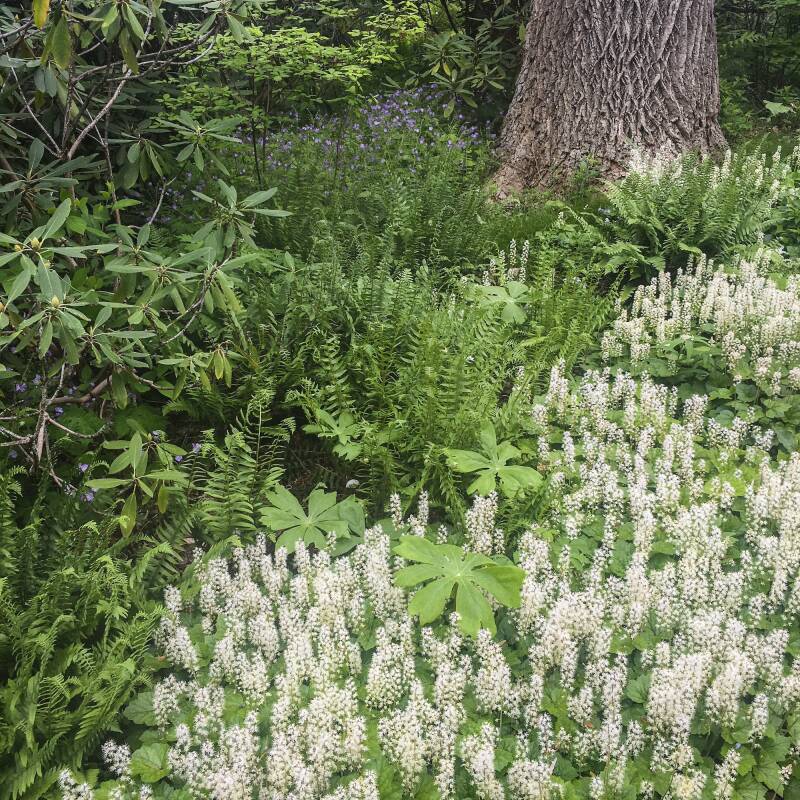There’s a special kind of joy walking into a florist’s shop to buy a bouquet for someone you love. However, those buckets of roses and mixed bouquets often have a hefty carbon footprint trailing them. “A lot of consumers are not really aware of the negative environmental impacts of the industry,” says Jenny Hauser, the founder of Field Trip Flowers, an eco-friendly flower studio in Brooklyn.
“Floristry is an unregulated industry—anyone can call themselves a ‘florist’ and, by the same token, a ‘sustainable florist,’ ” says Rita Feldmann, founder & director of Sustainable Floristry Network (SFN), an Australian organization that helps florists and consumers navigate the ecological impacts of cut flowers. She hopes the group’s efforts will start to shift florists to more sustainable practices. To learn more about how to find an eco-conscious florist, we asked Feldmann and Hauser to share their insights about what makes a florist sustainable.
Here are seven signs that your florist is eco-conscious:
1. There’s no floral foam in sight.

“Floral foam is a single-use plastic that frequently ends up in waterways and breaks down into microplastics that can harm aquatic animals,” says Feldmann. Not only is it bad for the environment, it is made from known carcinogens, including formaldehyde. While major floral events like the Royal Horticultural Society’s Chelsea Flower Show have sworn off floral foam, many florists still use it and Hauser says it’s still used in most floral design schools.
2. Their inventory is always changing.
Seasonal, local flowers inherently have the lowest environmental impact. “If a florist consistently offers the same thing, they’re going to be forced to order from less ecologically-minded sources,” says Hauser, who says that a sustainable florist could never sell the type of templated bouquets that come from online florists like 1-800-FLOWERS. In fact, Hauser says most sustainable florists won’t be able to guarantee specific flowers in their bouquets.
3. They’re selling (mostly) local flowers.

Locally sourced, field-grown flowers—ideally grown using sustainable farming methods—are the gold standard for sustainable floristry, says Feldmann, and if a florist is doing the work to source these blooms, they’re likely talking about it in their marketing materials.
4. They’re selective about imported flowers.
However, it may not be realistic for a florist’s flowers to all come from local farms. “There are times where I need a certain thing or I just need to fill the gaps in, especially now in the winter time,” explains Hauser, who tries to source as much as she can from local growers. When it comes to imports, eco-conscious florists will look for certifications like Fair Trade and USDA Organic that demonstrate sustainable and fair work practices throughout supply chains. She notes, however, that some farms may use organic methods but simply can’t afford the certification process, so it’s best to do your own research.
5. They never wrap flowers in plastic.

“Sustainable florists present their designs simply with natural fibers and easily recyclable or compostable materials like unbleached paper and natural fiber ties,” says Feldmann. They also avoid plastics materials like plastic wraps, balloons, and synthetic ribbon that are staples in conventional flower shops.
6. They have a compost bin.
In addition to avoiding packaging waste, sustainable florists are diverting their floral waste from the landfill by composting. Hauser uses a local commercial composting pick up service and notes that composting should be a no-brainer for most businesses because it offsets their expenses from conventional trash removal.
7. They’re local but they might not have a shop.

A retail storefront inevitably means more waste, which is one of the reasons Hauser no longer has a retail shop. “People didn’t understand the difference between my shop and the traditional florist down the street,” she says. “I don’t have the huge display cooler with the overabundance of imported flowers that people are used to seeing.” With her storefront online, Hauser’s sustainably-minded customers can pick up at her studio or request local delivery. Hauser says that she sees many of her eco-conscious floral designer peers doing the same, but she notes that moving your retail online is not the same as an online-only business that ships flowers to customers via fossil-fuel burning overnight delivery.
See also:
- The Garden Decoder: What Does ‘Organic Gardening’ Really Mean?
- 9 Best Practices for Sustainable Houseplants
- 10 Questions with Floral Designer Emily Thompson













Have a Question or Comment About This Post?
Join the conversation (0)